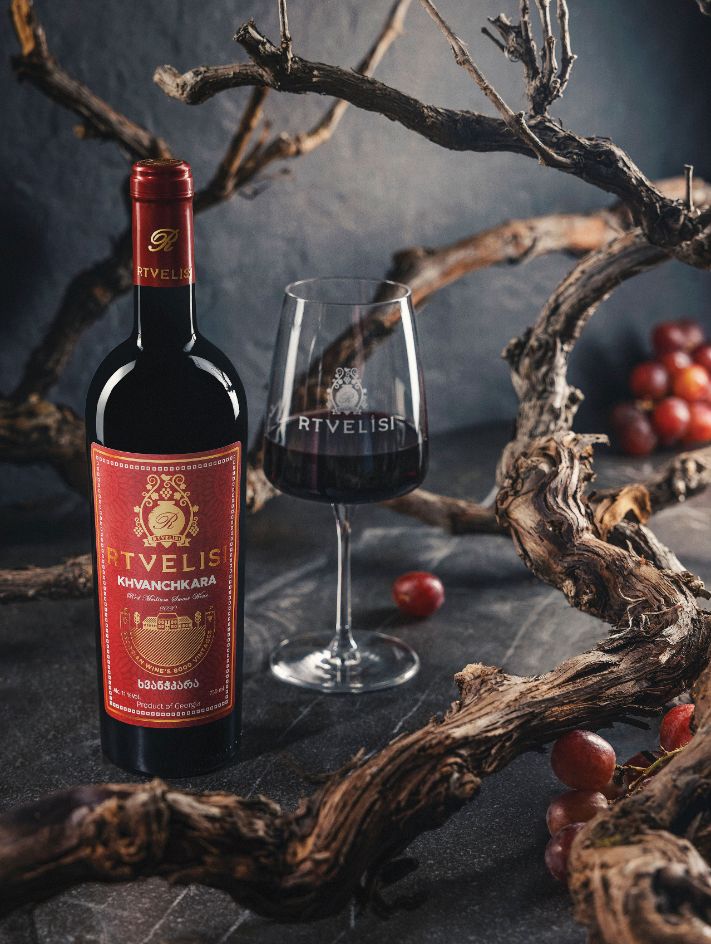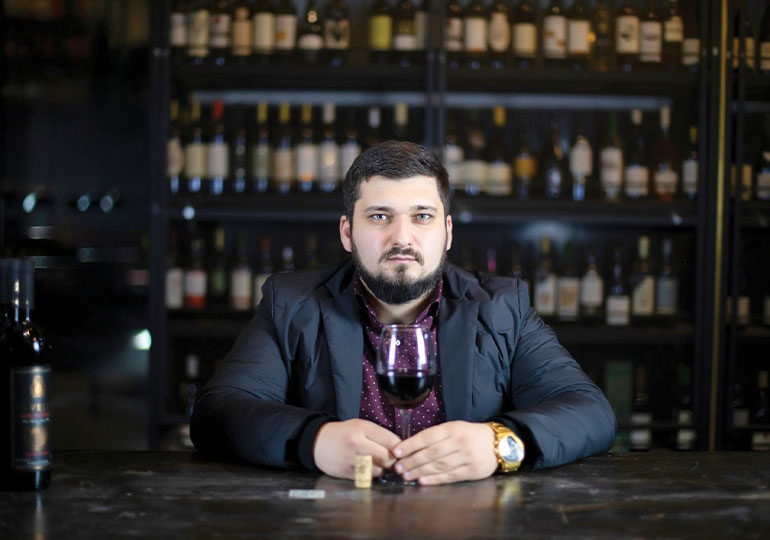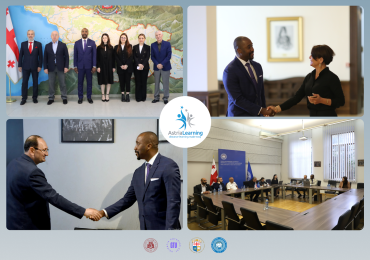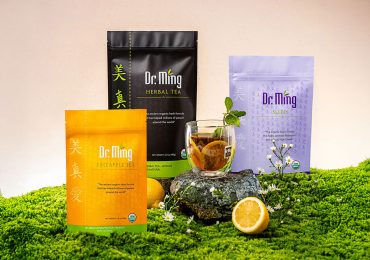Different volumes of wine were exported from Georgia by 441 companies last year. Among these companies is the company “Rtvelisi”, a producer of wine and other alcoholic beverages of grape origin, the founders of which had been engaged in viticulture and winemaking for years before founding “Rtvelisi” in 2019. Today, 95% of their factory-produced wine is exported to 17 countries. “Rtvelisi” aims at diversifying foreign partners. Tornike Chikadze, the founding partner and CEO of the company, talked to us about the company’s plans.
“Rtvelisi” appeared on the market a few months before the pandemic. What niche have you occupied in the Georgian wine market, where hundreds of companies are represented? What was the process of establishing yourself in a competitive market like?
Yes, “Rtvelisi” appeared on the market at the end of 2019. This was the period when we had to start selling, although essential sales markets were closing. Nevertheless, my partners and I believed in the success of this endeavour, so instead of retreating, we decided to do our best and achieve the goal. Establishing yourself as a wine production company in Georgia is not easy because Georgian wine’s best and most critical connoisseurs are Georgian consumers. From the day the company was founded, we knew that it would be easiest to sell quality products, so we focused on quality from the beginning. The desired result was not really delayed. At the same time, the marketing strategies that we pursued from the start and which did not stop us despite the pandemic were finally justified, and today “Rtvelisi” is already firmly represented in the Georgian market.
You started with five types of wine, and today you already produce up to 40 alcoholic beverages of grape origin. Among them are Chacha and Brandy. Which alcoholic beverage of “Rtvelisi” is most in demand?
At first, we tried to offer the customers the types of wine that were most in demand in the market. Still, the cooperation with partners showed how much interest there was in different types of Georgian wine. Accordingly, we already produce 16 types of regional wines, 7 types of local wines, 5 types of pitchers and 5 types of premium wines. In addition, there is a great interest in high-alcohol drinks of grape origin. Therefore we produce 2 types of chacha and 5 types of Georgian wine brands.
We also mentioned the factory located in the village of Shalauri in Telavi, which was aimed at producing 5 million bottles in the initial application. What is productivity like now? And are you planning to expand?
The factory in the village of Shalauri can already produce 5 million bottles. We plan to increase production by 20% in the next two years. I would also like to mention that there is also a Georgian wine cellar on the factory’s territory, where our pitcher wine is made. The factory itself is equipped with the latest European equipment and laboratory, which makes a significant contribution to the factory’s work. The increase in factory and winery productivity is directly proportional to the rise in sales; with this marketing plan that we have outlined for the next two years, we think we will stimulate sales.
Only 5% of “Rtvelisi” is produced in the local market, while the rest is exported to 17 countries. What are these markets?
It should be noted that the company combines 3 brands: “Rtvelisi “, “Meaman” and “Velvain”. Brands of all three individual concepts, with a total of three brands, we go to 17 countries, including the USA, Canada, England, France, Germany, China, Austria, Russia, Lithuania, Latvia, Estonia, Poland, Czech Republic, Belarus, Ukraine, Turkmenistan, Kenya. A relatively large share of exports comes from China, Canada, the United States and Poland. However, it should be noted that we have diversified the markets as much as possible, which allows us not to depend on any particular market. As for their requirements, every market has its demand; however, everyone is interested in pitcher wine, which we are very proud of.
Tell us about the future export strategy of the company; in which countries are you going to focus more and expand?
For the company, any market, big or small, is attractive, and each partner is essential. We work individually with each partner to maximize brand development in relevant wine markets. However, of course, we try to develop as much as possible in markets such as American, Asian and European, where the popularity of Georgian wine is relatively minor at this stage. That is why our future export strategy will be focused on this.
What should the country and Georgian wine producers focus on to promote Georgian wine on the international markets, and what can be our niche?
We are fortunate because we are already recognized as the homeland of wine, which is reinforced by the facts. In addition, winemaking in pitchers began 8,000 years ago in Georgia, and this tradition is still preserved today. We know that the traditional Georgian method of making pitcher wine was awarded the status of a UNESCO Intangible Cultural Heritage Site in 2013, indicating this method’s uniqueness. Consequently, Georgian wine already has its niche in the international markets, but we need even more popularization, which, of course, can not be achieved through the company’s efforts alone. National Wine Agency launches marketing campaigns in strategic markets to promote Georgian wine. Of course, such activities help to popularize Georgian wine. However, establishing yourself in any new market takes time, even after marketing campaigns.

Wine quality control is also considered one of Georgia’s main challenges. In your opinion, what does the Georgian wine market need today in this regard?
It is vital to increase the sales markets and increase the demand for Georgian wine; it will directly lead to the development of viticulture and winemaking. Entrepreneurs will have more opportunities to invest in manufacturing and viticulture development. The integration of high-level technologies in production will significantly help the irreversible quality correction process.
How does “Rtvelisi” ensure quality?
This is what we focus on. We think quality is the component without which a company’s growth is impossible. To ensure this, we have set up a quality control service that monitors the process from the vineyard to the bottling of the wine. The wine goes a long way from the vineyard to the bottle, and on this road, all the steps must be performed correctly to get the product at the level we demand.
The credibility of “Rtvelisi” is to popularize Georgian wine varieties and cultivate vineyards in all micro-zones on the territory of Georgia. Tell us about this. What stage are you at now, and what steps are you taking for it?
We have started the process of cultivating new vineyards. At this stage, we plan to invest in different micro-zones of Kakheti in the near future and then add other regions of Georgia. Today’s experience clearly shows that the interest in Georgian wine is constantly growing. That is why we need to offer many types of Georgian wine to foreign partners.
Mr Tornike, let’s summarize the interview with plans. What is the company aiming for by the end of 2022?
We always have very ambitious plans for the future. By the end of 2022, we will establish ourselves in the already existing markets and develop the brand. In addition, we are constantly looking for new partners. For this, we will continue to participate in various activities, for example, international exhibitions, where we can meet potential partners face to face and offer them to taste our product. Our products are evaluated by internationally recognized wine professionals in international wine competitions such as DECANTER, MUNDUS VINI, INTERNATIONAL WINE CHALLENGE, HKIWC and many more. The evaluation of such competitions helps us find new partners and sell specific products.
At this stage, we are already negotiating with several new partners, which will allow us to increase the list of our partners further and sell more in other countries. The company develops three trademarks in the export markets, for which our marketing team works tirelessly. So this year, that’s what we’re going to focus on.

















